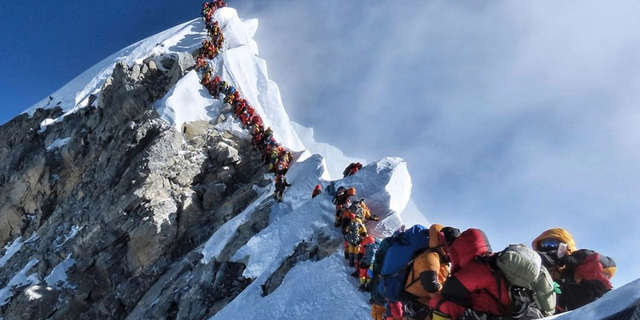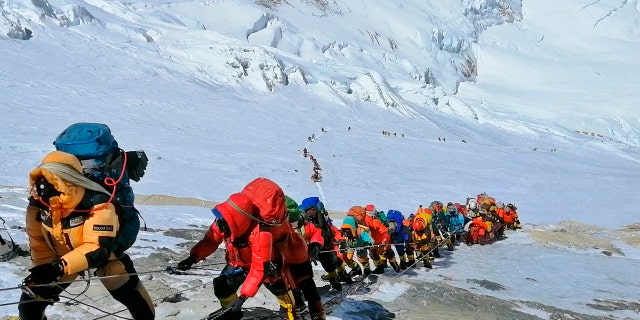Miners are seen at the Bayan Obo mine containing rare earth minerals, in Inner Mongolia, China July 16, 2011.
Stringer | Reuters
Rare earth minerals are a suite of 17 elements mineable in the earth's crust, with names such as cerium, europium and lutetium. They are commonly used in everything from car motors and electronics to oil refining and clean diesel to many major weapons systems the U.S. relies on for national security, including lasers and radar.
About 35% of rare earth global reserves are in China, the most in the world, and the country is a mining machine, producing 120,000 metric tons or 70% of total rare earths in 2018, according to the United States Geological Survey. The U.S. pales in comparison as it mined 15,000 metric tons of rare earths in 2018 and has a total of 1.4 million metric tons of reserves, versus China's 44 million.
.1559225955127.png)
U.S. consumption of rare earth compounds and metals relies heavily on imports, which rose to $160 million in 2018, according to USGS. Eighty percent were from China. To make it worse, although other countries supply to the U.S. including Estonia (6%), France (3%) and Japan (3%), much of their materials were derived from mineral concentrates and chemical substances produced in China, according to Hui Shan, commodities analyst at Goldman Sachs.
"The U.S.' reliance on Chinese supply may be higher than the import breakdown data suggest on the surface," Shan said in a note on Wednesday.
.1559228557429.png)
Given U.S. dependence on Chinese supply, the threat of a restriction could hurt many industries including high-tech devices, automotives, clean energy and defense. An example is the element lanthanum.
"The glass industry is the largest consumer of rare earths. For example, lanthanum makes up as much as 50% of digital camera lenses, including cell phone cameras. Hybrid electric cars use significant amounts of lanthanum in its batteries – 10-15 kilograms per vehicle," said Michael Widmer, metals strategist at Bank of America Merrill Lynch, in a note.
"Dangerous interaction"
Rare earth materials are also crucial to the U.S. defense systems because of their usage in lasers, radar, sonar, night vision systems, missile guidance, jet engines, and even alloys for armored vehicles, all of which the U.S. relies upon for national security.
The Pentagon on Wednesday presented a report to Congress on rare earth minerals in an effort to reduce reliance on China. The move came after the Chinese newspaper People's Daily warned it would cut off the rare earth supply, saying "don't say we didn't warn you. "
In a 2018 report by the Department of Defense, China's domination of rare earth elements was highlighted as it shows "the potentially dangerous interaction between Chinese economic aggression guided by its strategic industrial policies and vulnerabilities and gaps in America's manufacturing and defense industrial base."
"China has strategically flooded the global market with rare earths at subsidized prices, driven out competitors, and deterred new market entrants," the report said.
Non-Chinese suppliers
While China remains a dominant player in the rare earth market, production outside of the country is also growing, which could provide the U.S. with some alternatives, according to Credit Suisse.
Non-Chinese production has grown to about 29% of the global production from just 3% in 2009, said Manish Nigam, Credit Suisse's equity analyst said in a note on Thursday.
"A U.S. facility is under a revival plan since last year, and the fully operational Australian/ Malaysian venture (Lynas) has a production capacity that is more than the entire demand of the U.S., though processing of some oxides still gets done in China," Nigam said.
The impact of an export ban would be somewhat diffused across different U.S. sectors and countries, Nigam said, noting that electric vehicles and clean energy would be impacted the most.
Still, any escalation at this point poses a threat to the market as stocks continue to suffer amid the tit-for-tat strategies in the trade war. The S&P 500 is down 5.4% in May, on track to post its first negative month of the year.
"The effect of China restricting its rare earth exports to the US could have a much larger impact on the broader market this time around because of the ongoing US-China trade war," said Goldman's Shan. "Investors probably would expect further retaliations from the US and risk assets such as copper could face even more headwinds than it is currently under."
— CNBC's John Schoen and Michael Bloom contributed reporting.
https://www.cnbc.com/2019/05/30/heres-why-chinas-trade-war-threat-to-restrict-rare-earth-minerals-is-so-serious.html
2019-05-30 17:37:35Z
52780304998936




